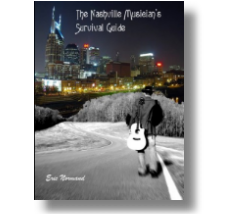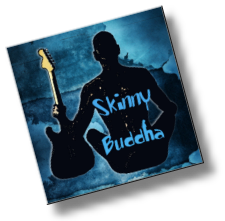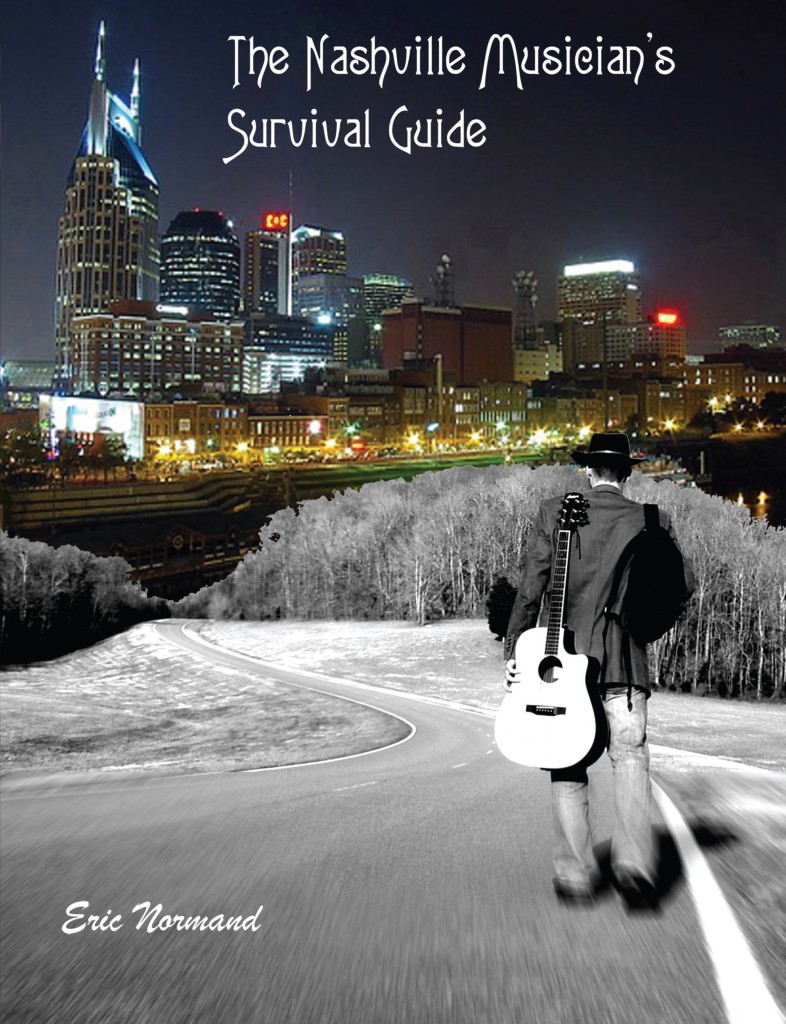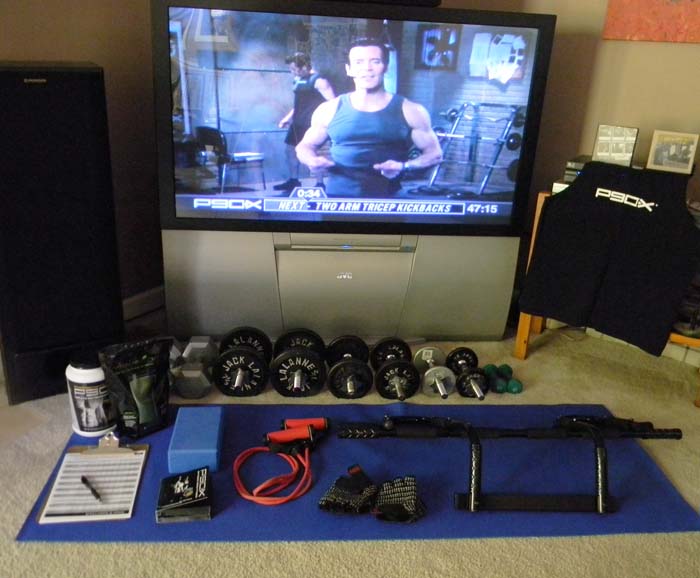
That’s right everybody, the book really is finally done and now available to all who have been patiently awaiting its arrival. Orders for the print version will be processed and shipped this week, the e-book and Kindle version will be ready and available by the middle of next week, and I can’t tell you how excited I am to finally be at this point in time! Others involved in the project are getting excited too. Check out these back cover blurbs that a couple of folks offered after checking out advance copies:
“Awesome! Required reading for any musician moving to Nashville, especially as a hired gun.
Hundreds of hours of priceless advice condensed into one thorough and brilliant book
– an incredibly helpful masterpiece. Makes me want to move there now!”
— DEREK SIVERS, Founder of CD Baby
And:
“If you are making or want to make money in the music industry of Nashville, “The Nashville Musician’s Survival Guide” should be your next purchase. Eric Normand’s beautiful and comprehensive book contains invaluable insider information and practical advice from pros actually making a living in the industry now. A terrific read for anyone interested in peeking into the unique world of music Nashville. Even the pictures rock!”
— JUDY RODMAN, Vocal Coach, Producer, Hit Songwriter
As you could imagine, there was a big celebration at the Normand house when these e-mails arrived!
When I embarked on this journey two years ago last January, I had no idea I would be entering the world of book self publishing. In fact, when I initially began writing the content that became the foundation of this book, I had no intention of writing a book at all, or even the knowledge about how to go about doing this. At that point in time, I was simply trying to help a few folks on Craigslist and other message boards who wanted some info about the Nashville music biz’. The next thing I knew I was writing a book, almost by accident. The more I wrote, the more I began to understand the massive scope of this project, and the work it would entail to finish it – Internet research, extensive recorded interviews, photo taking excursions, etc. At some point along the way the book began writing itself. It was as if I was a mere conduit, the end result first being the story of the modern-day Nashville music industry magically appearing on my computer screen, and now in this wonderment of a book.
I couldn’t have done it alone either. Dozens and dozens of people have contributed their time and resources to this project and for this I am eternally thankful, their contributions have made this a far greater book than I could have produced alone. While the entirety of this project has been a massive undertaking (there were many times that I felt as if I would be writing this book for the rest of my life), this has truly been a labor of love – my way of paying forward all that I have learned in this strange place we call Music City, and I am absolutely thrilled with the end result.
So if you’ve been waiting for this book, it really is finally here. Thanks for your patience and I hope you enjoy reading “The Nashville Musicians Survival Guide!”
P.S. If you live in middle Tennessee, I would like to invite you to our official book release party at The Fillin’ Station in Kingston Springs on Saturday, April 30 from 7 to 11. Many of the contributors to the project will be in attendance on this night, there will be music performed by my band (Mike Chapman will be on bass and Fran Breen on drums), and the first three people to ask will receive a free copy of the book.
This is another question I was asked in an interview by Wendy Willis for her upcoming book ‘Making It In Nashville‘. The question made me think of a few different scenarios regarding how auditions are conducted in the Nashville music industry. The following exemplifies two of the most common types of auditions.
The Gretchen Wilson Cattle Call
By 2004 I had already been in Nashville for a couple of years when Gretchen Wilson’s ‘Redneck Woman’ hit the airwaves, launching her into immediate super stardom. A few weeks after this song debuted on the radio, I heard through the grapevine that she was holding auditions to find an acoustic guitar player for her touring band. By the time I heard about these auditions, the rest of this band had already been assembled. By making a few phone calls I was able to track down a contact within her camp. During a very brief phone conversation he gave me the names of two songs to learn, ‘Redneck Woman’ and ‘When I Think about Cheatin’, and a timeslot to audition at the Sound Check rehearsal facility. I learned the songs and showed up to Sound Check about a half hour early on the day of my audition. As the auditions were running late, I picked a spot in the hallway outside of the rehearsal room amidst a sea of other hungry guitarists, all with their acoustics in hand, many wearing what was obviously their best stage clothes.
The high point of this day for me was not actually my audition, but listening to the band Journey rehearsing in one of the other rooms down the hall. They sounded magnificent and were truly inspiring! I even got to meet Neal Schon when they took a break. Standing outside their practice room door and listening to them play helped me to take my mind off of the nerve-racking moment that still awaited me. But this brief detour into my rock ‘n roll dreams of yesteryear ended when my name was finally called. I entered the cavernous room, which I believe was the biggest room at the facility, and the intimidating scene quickly came into focus. A large stage filled with gear and musicians and fronted by a substantial PA system was staring me in the face from the opposite end of the room. I was greeted near the doorway by Gretchen’s manager who chatted with me briefly, asking a few questions about my experience. I headed to the stage where the musicians that comprised her nearly complete touring band, none of whom I knew, patiently waited. After plugging in and getting a quick monitor level, Gretchen entered the room and sat on a stool about 30 feet in front of the stage.
So there I was, standing on the stage surrounded by strangers, and performing for an audience of country music’s newest superstar and her management. The band counted off ‘Redneck Woman’ and I began strummin’ away. While sitting on the stool, she belted out the song as if she were an arena filled to capacity, watching my every move. The song ended to a stone cold silence which was quickly interrupted by somebody yelling out ‘When I Think about Cheatin’, which was immediately counted off. That song ended, seemingly as soon as it started, and my audition was over. A couple of the players said “Good job” and her manager said “Thanks , we’ll let you know something by the end of the week.”
Fearing that I didn’t make the grade, I left the rehearsal hall and drove home not having a clue about how I was perceived. They did call me a few days later to notify me that I was not chosen. I remember hearing later that the player they chose for the spot had already been chosen before that day of auditions. Perhaps they were trying to see if there were any other options, looking for a backup, or appeasing the management. All in all, it was a fairly miserable and stressful experience, but it was educational. This was my first cattle call style audition, and while it did not land me the gig, it did help prepare me for future auditions. Since that day, I’ve done several other cattle call style auditions, all of which were somewhat similar. Until you ever get to do one of these, the term ”cattle call” will only have a vague meaning to you. But after you stand in the middle of a long line of auditioning players, get quickly corralled in it out of the feeding lot, tagged, tested, and sent on your way, you will immediately understand.
Rhett Akins Showcase for BNA Nashville
It was late summer, 2005, and right in the middle of touring season, when Rhett Akins, one of the artists I was working for at the time, told me we needed to prepare for a record label showcase. His management had helped him gain the attention of Joe Galante and some other executives from the record label, BNA. We had about two weeks to prepare for it, so a couple of rehearsals were scheduled for us to build and hone a short set of his strongest material that would hopefully land him a new deal.
His management made arrangements for the showcase to take place in a small comfortable nightclub located on Third Avenue in downtown Nashville. We arrived to the venue early in the afternoon on the day of the showcase, loaded in our stage gear and monitor rig, and began setting up. We did a sound check and rehearsed a few of the tunes. It was tough to get a good sound in this particular room as the acoustics were less than desirable, but after several adjustments, we arrived at an acceptable place. After sound check we chilled for a bit, ate some dinner, and waited for downbeat.
The showcase was scheduled for seven o’clock, and around six o’clock some patrons began to arrive. It had been encouraged for us to all invite and bring as many friends and family as possible to help create a warm and inviting atmosphere for the big wigs. The turnout was pretty good, and the club was near full just a few minutes before showtime when Galante and his entourage arrived to be seated at a reserved table, one that had been strategically chosen for sight and sound.
Just a couple minutes before we hit the stage we all gathered in a back room to have a quick pep rally, kind of like a football team going into one last huddle before game time. If Rhett was nervous, he wasn’t showing it, he was cool as a cucumber. I was probably more nervous than he was. Dressed in our best, we hit the stage hard and fast, and the first two songs, played back-to-back, were over before I knew it. The crowd roared with approval, and Rhett began to turn on the charm, addressing the room as a whole and putting everyone at ease. He had been working out hard all year and was in great shape, not only giving off the vibe of a superstar, but also showing off a youthful physique, similar to that of his college quarterback days of yesteryear. We stomped through the rest of our 50 minute set with Rhett talking occasionally between songs, even getting some laughs out of the table of executives. The set ended and we began to break down our gear while Rhett courted the table of potential business partners.
As far as these kinds of showcases go, this one went off without a hitch. Rhett performed brilliantly, the band played well, the crowd loved it, and, more importantly, the folks from BNA loved it. After a couple more weeks of negotiations, Rhett was signed to BNA Nashville. So I guess we passed the audition!
What have been your audition experiences been like?
In this day and age, looking the part is often just as important as playing the parts for many professional musicians. This is equally important for those who have not yet achieved a career in music, but are working towards one. While being proficient on your instrument and possessing good social and networking skills are obviously important, in the world of live music performance, your appearance can sometimes be a deciding factor on getting the gig.
It’s easy to find the right clothes, and it’s a well-known fact that working out and having a good physique will make those close “hang well” on your frame. But for some (men especially), the hairstyle, or lack thereof, can be a dealbreaker. I’m not talking about the 20 something’s with the $300 spiky mod looking haircuts. As much as I don’t care for that look, they are not the biggest offenders of the modern day hair wars. In my opinion, it’s the guys who are losing their hair but living in denial that really need to rethink the current state of the top of their heads.
It’s no secret that many of us have lost, are losing, or will lose much our hair over the course of our lives. For some it begins as early as late teens or early 20s, for others it might not happen until they’re in their 30s or 40s, while others manage to hold on to most of their mop 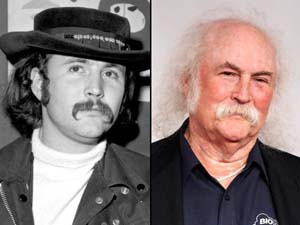 until old age. Sometimes this hair loss happens rapidly, over several months or a couple of years and sometimes it can occur very slowly and gradually over decades. Some just get a little bald patch near the back of our head, while others are stricken with more of that dreaded “parting of the seas” look.
until old age. Sometimes this hair loss happens rapidly, over several months or a couple of years and sometimes it can occur very slowly and gradually over decades. Some just get a little bald patch near the back of our head, while others are stricken with more of that dreaded “parting of the seas” look.
Many musicians take great pride in their hair, often choosing a style that works for them in their younger years and sticking with that as they age. Some will sport short to medium length do’s while others choose to wear it long, anywhere from the mid-60s Beatles look all the way to full-blown hippie length. But if you are in the unlucky category that many of us fall into, that being the permanent hair loss club, these styles will begin to create a different effect and take on new meanings as these 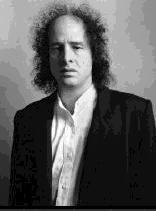 hair follicles slowly begin to vanish forever.
hair follicles slowly begin to vanish forever.
Are you the guy with the comb-over? If you are, you’re not fooling anyone. Maybe you’re the guy that had hair like Greg Allman when you were in your 20s. Oh, how the girls loved it back then. But how are you being perceived now when that part between you’re neatly combed and blowdried shoulder length blond hair rival’s the San Andrea’s fault? Probably more like the friendly lion in the wonderful Wizard of Oz. There’s always a baseball cap. But eventually, as people notice over time that you’re never seen without one, it will become a dead giveaway that you’re hiding something. You could always grow a beard and start wearing a cowboy hat, sporting your version of some kind of half assed Travis Tritt look, but that’s a pretty big commitment, and not that hip anyway. Not to mention, when you commit to the whole hat thing, what happens when you go swimming? What happens the first time you sleep with a new girlfriend?
Face it, none of this works. Yet, somehow, we see people that look like this all the time. Well I have some 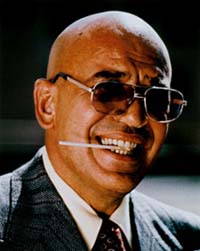 great news for all of you who are fighting this futile “battle of the bald”. There is a way out, and I’m not talking about hair transplants, wigs, or toupe’s. Just let it go. That’s right, shave it off. Bald is beautiful, baby. For proof, look no further than Telly Savalas or Bruce Willis.
great news for all of you who are fighting this futile “battle of the bald”. There is a way out, and I’m not talking about hair transplants, wigs, or toupe’s. Just let it go. That’s right, shave it off. Bald is beautiful, baby. For proof, look no further than Telly Savalas or Bruce Willis.
Growing up, I had a thick head of hair, and by the time I was 15 had already experimented with growing it long. I went in and out of short hair and long hair mode for a few years before going all out in the late 80s, when I began sporting a full-blown Richard Marx style mullet. Of course, at that moment in time that style was in, so spending 20 minutes with a can of moose and a blow dryer to get ready to go out for the night, or gig, was completely natural. Of course I kept this “helmet do” well into the 90s, long after it had become unfashionable. Then, in my mid-20s, it all started going quite badly.
Over a period of about a year, I lost most of the hair in the middle of my head. It happened so quickly that I hardly even noticed at first. But then when my girlfriend started telling me that I was beginning to look like Michael Bolton, I knew something was wrong. On a bad day, my massive bouffant do, once reminiscent of Peter Frampton’s early look, began to look more like that of the comedian, Gallagher. Comments like “Here comes Billy Crystal” or “Is that Stephen Wright?” and even “When did David Crosby lose all that weight?” also caused much embarrassment. So I began a slow transformation. I attempted to minimize my baldness by wearing hats, doo-rags, even at times pulling it back into a ponytail. But ultimately, this wasn’t working. Half the time it just looked bad.
So finally, around the year 2000, I took it down to a fairly short length, just an inch or so on top. It was better than having “Gallagher syndrome”, but still not quite right. Shaving it down to the scalp was the only thing left to try. At first, I was horrified at the thought of doing this, but with a little prodding from my wife, I went for it. Boy am I glad I did. I instantly realized that bald works for me. Having a bunch of hair on the sides with the bald spot in the middle was simply drawing attention to the fact that I was balding. Lose all that hair, and you create the perception that you are bald by choice, not because of nature. In other words, nobody can tell that all your 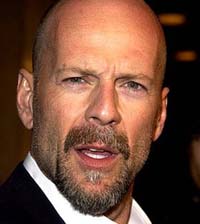 hair fell out. Now when I look in the mirror, I feel younger.
hair fell out. Now when I look in the mirror, I feel younger.
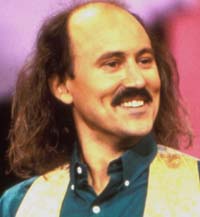 Plus there are many added benefits. Showers now take five minutes. I save a small fortune on shampoo and conditioner and haven’t bought a comb or a hair brush in decades. Getting ready to go to work or out on the town now only takes seconds. It’s harder to get dandruff, and my head is now essentially “lice-proof”. But most important of all, I no longer look like an idiot.
Plus there are many added benefits. Showers now take five minutes. I save a small fortune on shampoo and conditioner and haven’t bought a comb or a hair brush in decades. Getting ready to go to work or out on the town now only takes seconds. It’s harder to get dandruff, and my head is now essentially “lice-proof”. But most important of all, I no longer look like an idiot.
So which guy are you? Are you still clinging to the past, or have you embraced your inner baldness? Whose look do you relate to more, Stephen Gallagher or Bruce Willis? It’s not too late to save yourself. So what are you waiting for, get out those clippers and get busy!
Becoming a successful musician or an entertainer in the 21st century is a tough endeavor. It’s probably as difficult as becoming a successful actor in Hollywood. In this field of extreme competitors, you need to have every advantage you possibly can. Even if you aren’t going after the big prize, for many musicians, a lifetime of pursuing their craft will still take its toll. This is why it is in the best interest of most musicians to be physically fit.
If you are a musician, whether you play guitar, drums, sing, saxophone, or other, you inevitably fall into one of two categories; 1.) Professional musicians, semi professional musicians, and musicians aspiring to become professionals, or 2.) Amateur musicians, hobbyists, and musicians that play solely for expression, art, or the fun of it, regardless of compensation.
If you are either working as a professional musician, or aspiring to do so, you probably already know how competitive this field is (if you don’t, you might want to take a look around you). To earn a living as a musician in this day and age, or at least a partial living, a great many things must come into alignment. Talent, social skills, looks, longevity, and luck are some of the essential components. Since you really can’t control luck, and assuming you have some talent and social skills and are already honing those traits, that leaves looks and longevity up for grabs. This is where physical fitness comes into play.
Looking Good
I chose to address this factor first because so much of what happens in the entertainment industry is based on appearances. As superficial as this may be, it is simply a fact, and one that shouldn’t be overlooked. While I do feel that looks and talent shouldn’t have to be tied together, the focus here is on the music business, so I’ll save that discussion for another time.
We have a strange way of approaching how we look in our society, that being that we tend to put makeup on a pig. I’m sure you’ve heard that expression before, but here’s my spin on it. How many times have you seen some performer, whether on TV or in a nightclub, who has obviously put a lot of thought into his or her wardrobe and appearance? $300 haircuts, pre-ripped and pre-faded designer jeans, fancy shirts, eye-catching jewelry, makeup, even an obvious obsession with tanning is evident for some. Yet when you look at the performer’s arms , there isn’t a hint of muscle tone to be found anywhere. Even though they aren’t obviously overweight, you can’t help but notice their ass looks just a little too big for the outfit struggling to hide it. Or perhaps he or she has no ass all, flat as a board on the backside due to the fact that they have no muscles there either. Of course this description would describe many people in almost any field. As most Americans are now overweight, each year the numbers steadily increasing, so is our desire to attempt to mask this fact with fancy haircuts, designer clothes, spray-on tans, and makeup.
But if you are aspiring to be a professional musician, you are different than most people, you are in the world of showbiz. This means that, in many cases, your appearance is directly tied to your career, and sooner or later you will be judged on your looks. So rather than continuing to follow the trend of ‘putting makeup on a pig’ why not address the issue at its core and put more emphasis on physical fitness. There is a difference between being skinny, a little overweight, and being physically fit. I have been skinny for most of my life, but I have not always been fit. When you are physically fit clothes automatically hang better, your skin color looks better, and your face looks younger. People who are physically fit tend to have increased energy and stamina, and this helps to project a more youthful vibe in general. Not to mention the increased confidence and sex appeal that can come with being in great shape. With the music and entertainment industries now more competitive than ever, there is simply no excuse to not look as good as you possibly can. A fancy haircut and designer clothes aren’t going to fool everybody.
Longevity
To me, the need for longevity makes the best case for being physically fit, and this applies to all musicians, pro or otherwise. From the time we were teenagers, through our 20s, even into our 30s, typically, our bodies are still functioning under their original drivetrain warranty, meaning that, at least for most of us, things aren’t yet starting to go wrong on the grand scale that they eventually will. If you are a young person and reading this, you’re probably thinking “That’s the kind of crap my grandfather used to tell me.” Well I hate to say it, but ol’ grandpa was right. As our bodies age our joints begin to wear, we become more susceptible to injuries, injuries take longer to heal, and a whole host of other problems ranging from high blood pressure to heart disease and beyond start becoming more likely. I’ve had tendinitis for five years now, and sometimes it interferes with my playing. Some of my musician friends, after decades of problem free careers, are now starting to have their own problems too. Everything from back problems to carpal tunnel and even diabetes and strokes are now interfering with their careers and lives.
The effects of aging can and will happen to people from all walks of life, but the hard lifestyles of many musicians can further amplify the effects of aging. Being a musician is stressful, often requires extensive travel, and for many of us, requires a repetitive hand, arm, or leg motion that is certain to lead to problems. Being physically fit is the only way to combat these problems. Alcohol or drugs, whether prescribed or other, are only a band-aid, and for many, masking the pain in this way can lead to further injury. Being a career musician, I often have little to no choice about the gigs I need to take to make a living. Sometimes I will play a 3 1/2 hour show nonstop. This requires great stamina and, even though I am in good shape, sometimes my whole body aches after a long hard gig. How much worse would I hurt if I didn’t take care of myself? I still have to load my gear into my car regularly and my Vox amp weighs almost 100 pounds. Over the years, I’ve thrown out my back doing this on more than one occasion, being physically fit helps combat this as well. Regular exercise has been the best weapon against my tendinitis too. Without regular stretching and exercise it quickly becomes almost unbearable.
In the world in which we live and work, a world full of extreme competition, an extreme approach to health and fitness simply makes sense. Some people say that America has the best workforce in the world. If this is true, shouldn’t the best workers be in tip top shape? You can either continue ‘putting makeup on the pig’, or you can work towards becoming fit and give yourself a real leg up on the competition. Even if you don’t aspire to play professionally being fit will help ensure the likelihood of enjoying your hobby or art for years to come. As far as achieving an extreme level of physical fitness, there is no shortcut. It can only be achieved with good old-fashioned hard work which involves a lifelong commitment to regular exercise and healthy eating.
Do you want to look good when you’re 50? Do you want to still be able to play music effortlessly when you’re 60? I do.
